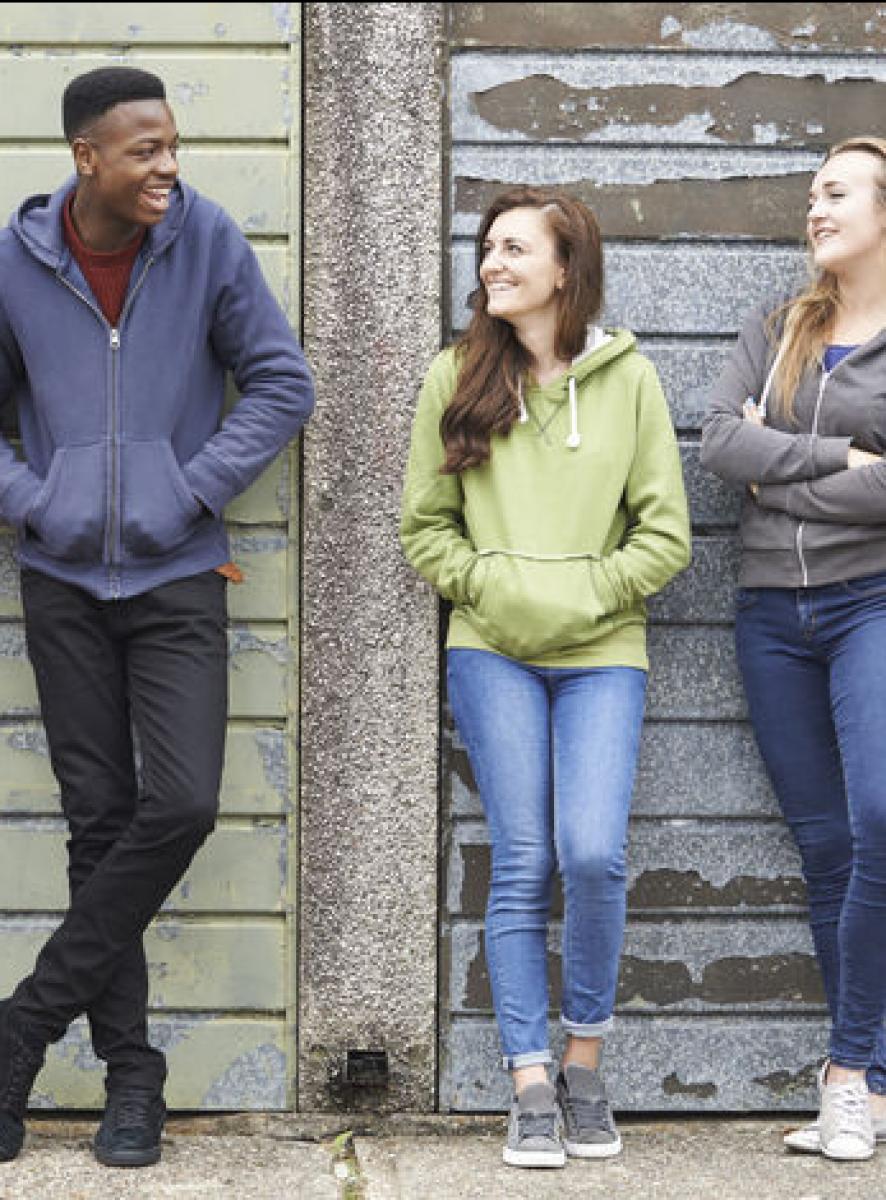Research in transition psychiatry, a necessity to improve the care of young people with mental suffering

n 2019, two university chairs in transition psychiatry were established, thanks to support from the Julie Renson and Queen Fabiola Funds and from the King Baudouin Foundation. 1.2 million euros was invested to contribute to the development of a discipline at the crossroads of care between child psychiatry and adult psychiatry, a field in which little has been invested in Belgium.
In Belgium, one out of every three people has psychological problems. And 1.2 million Belgians take antidepressants. As well as depression, there are a good many other psychological problems, such as anxiety, compulsive disorders, bipolarity and schizophrenia. In 75% of cases, many of these troubles appear between the ages of 14 and 25, the transitional period between adolescence and adulthood, during which psychological fragility is at its greatest. And yet, it has been observed that during this pivotal period, there is a break in continuity of care between psychiatry for young people and that for adults. The limit of 18 years old seems rather artificial in the light of the reality of these young people’s needs, when many of them are not completely adult despite their legal majority. Given this pressing need, the Julie Renson and Queen Fabiola Funds, together with the King Baudouin Foundation, are working to put transition psychiatry on the agenda and to contribute to its development in Belgium.
An innovative type of support
Two chairs (one French- and one Dutch-speaking) were therefore set up at the end of 2019, thanks to support from mental health funds managed by the Foundation, with a total of 1.2 million euros spread over four years. This is really invaluable support, given that in Belgium, only between 6% and 7% of the total healthcare budget is allocated to mental health, despite needs in the sector being so great. The chairs have three objectives: to promote interdisciplinary research, to put in place teaching on the subject and to share knowledge in transition psychiatry, especially through the transfer of research results in the field. For instance, through the development of information support and innovative care practices for young adults that are adapted to the stage of their life and their needs.
The projects developed by the two chairs will be notable for their innovative nature and interdisciplinary approach. In addition to collaboration between child psychiatry and adult psychiatry, the French language chair ‘Transition psychiatry in a world in transition’ encourages collaboration between various hospital locations e.g. the Queen Fabiola University Children’s Hospital (HUDERF), the Erasmus Hospital, CHU Brugmann as well as the Mental Health Service of the ULB. The Dutch language chair ‘Mental health in challenging times’ is using the new technology of virtual reality to develop new care protocols.
Véronique Delvenne, Head of the Child Psychiatry Department at HUDERF: "Very little research has been conducted up to now in the field of transition psychiatry. This support will enable us to invest in the field by developing inter- and extra-hospital as well as inter-sectorial cooperation. The issue of transition is not only one that exists in psychiatry; other sectors are also concerned, such as education and the judiciary. We are conducting research among various groups of young people (aged 16-20), who manifest psychiatric or psychological problems, problems of consumption or addiction and who may or may not have been referred by youth welfare services, with a view to identifying risk factors and proposing appropriate care trajectories. Parallel to this, we are developing knowledge sharing through the establishment of a network in transition psychiatry in French-speaking Belgium and the organisation of annual conferences. A model on transition psychiatry will also be integrated into the training of students in psychiatry, child psychiatry and psychology.”
Watch the video about the Chair of Transition Psychiatry in a World in Transition.
Ruud Van Winkel, Psychiatrist, KULeuven: “Finding funds for fundamental research is still possible, but when it’s a question of clinical projects, it gets a lot more complicated. This is why the means made available by the King Baudouin Foundation are so important. The research we are financing with this support covers two main aspects: the use of virtual reality in therapy and examining how transition psychiatry is already practiced in Flanders and which practices actually work for youngsters and for the therapists. We believe that transition psychiatry needs to be more than just good management of the transfer from child and adolescent psychiatry to adult psychiatry: it has to propose an offer of integrated care for young people in the phase 14 to 25 years old, in order to facilitate early detection of vulnerable youngsters and make them more resilient.”
Almost 7 million euros of support for health research
In 2019, 43 Funds managed by the King Baudouin Foundation and dedicated to research in health together allocated almost 7 million euros to 55 health research projects in fields as varied as cancer, Alzheimer’s disease, rare diseases, ophthalmology, rheumatology, cardiology and psychiatry.
If you would like further information, we would be delighted to send you the brochure with the 2019 prizewinners, as well as a brief description of their research projects (in English).